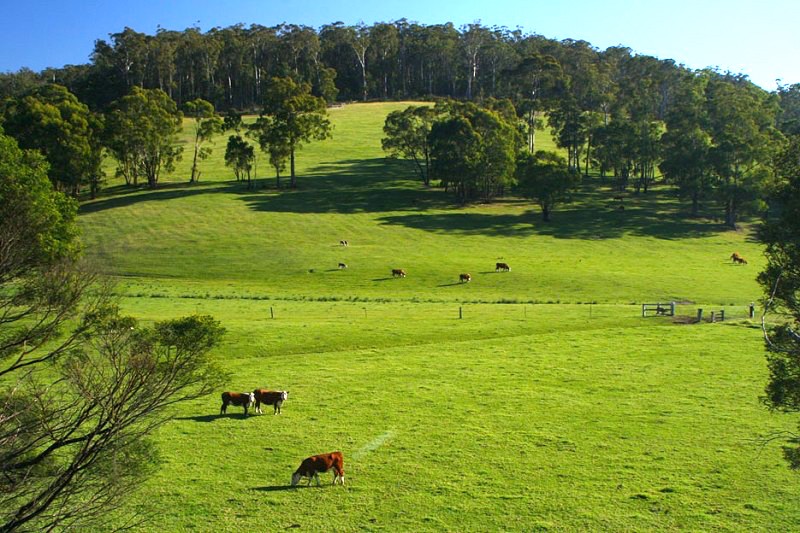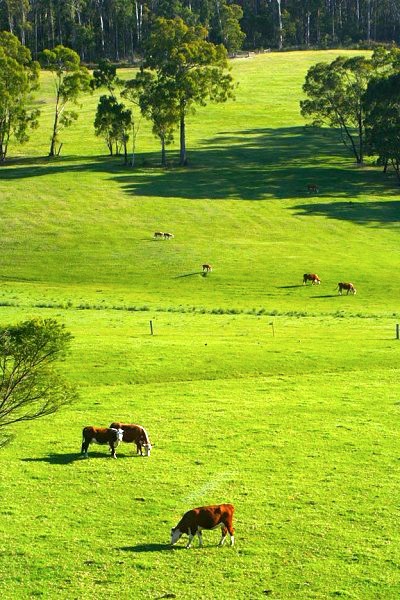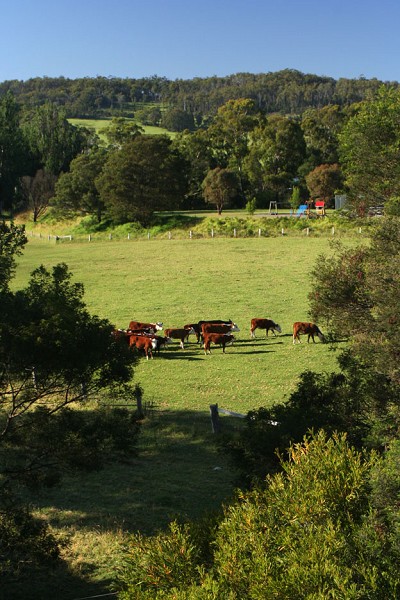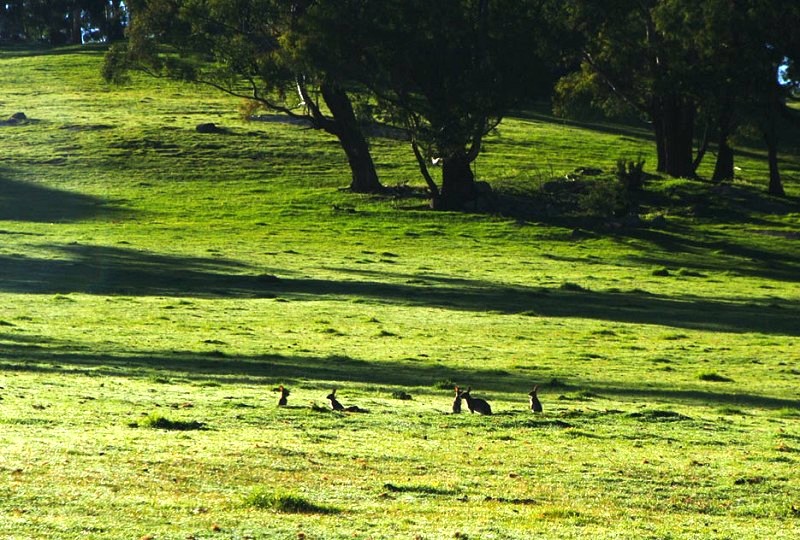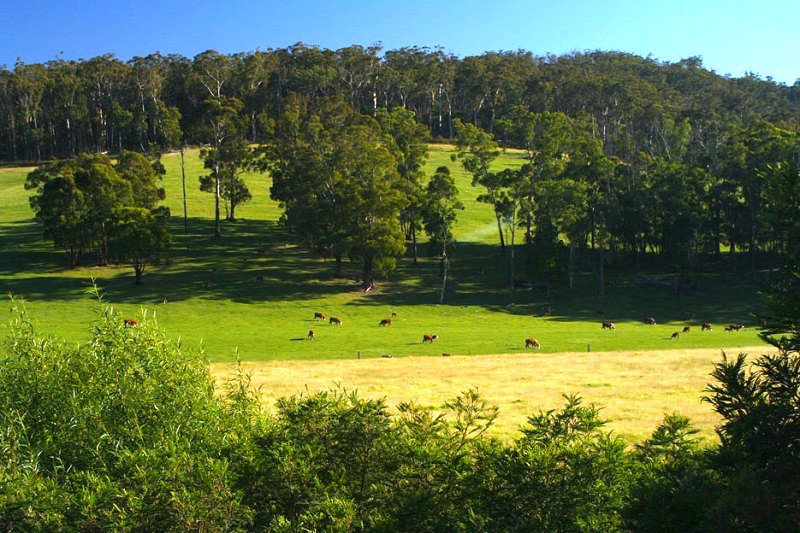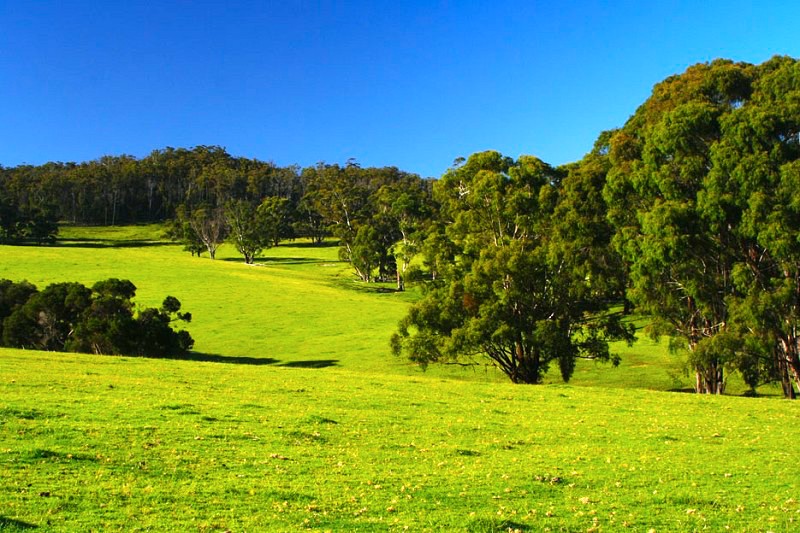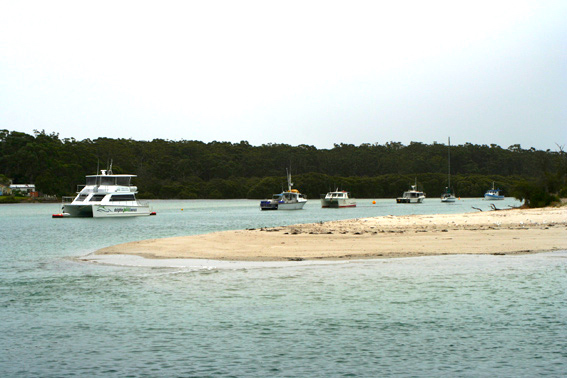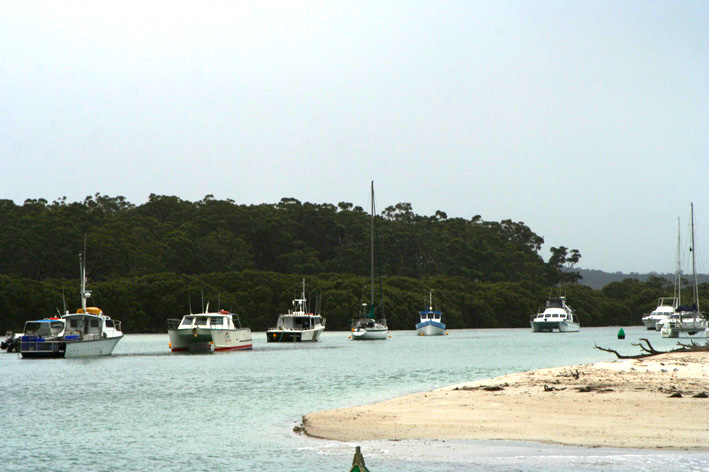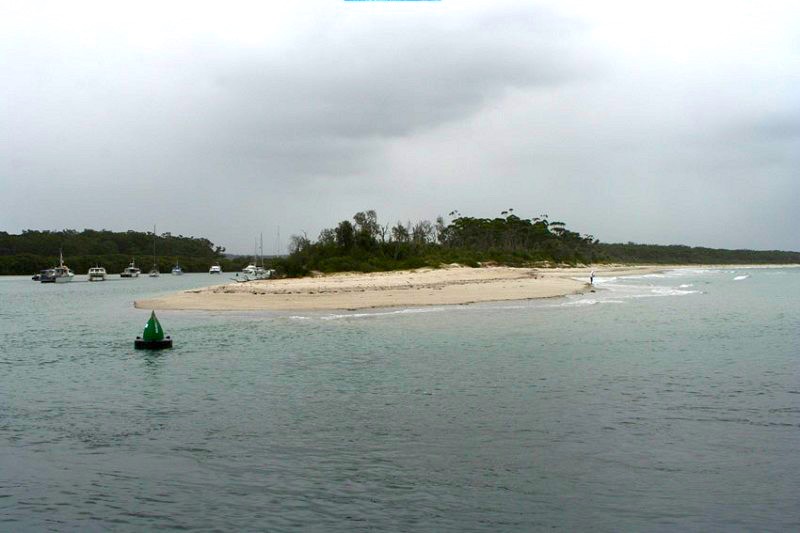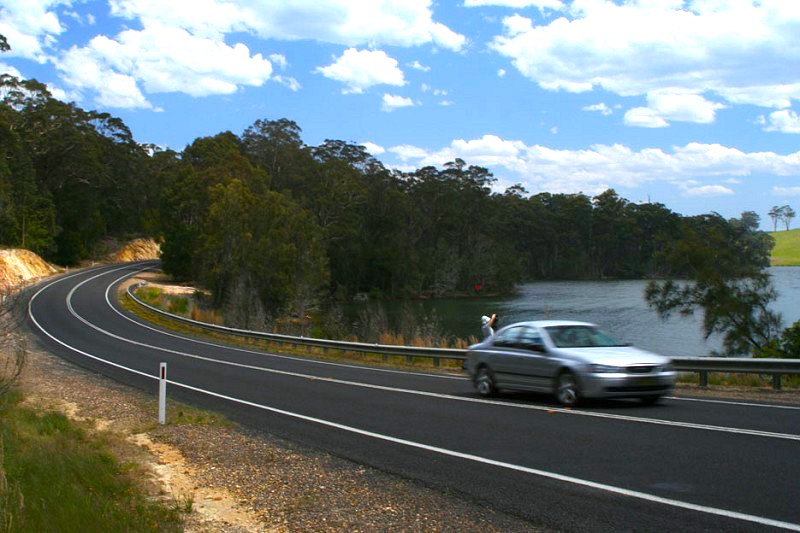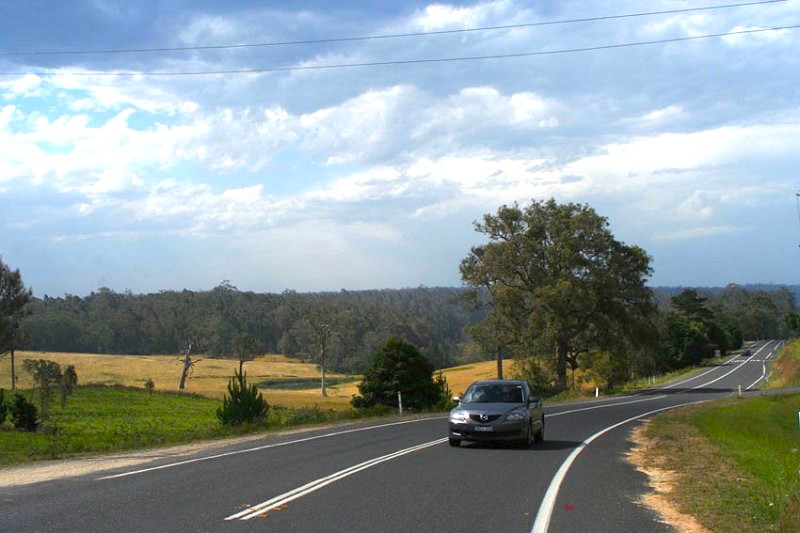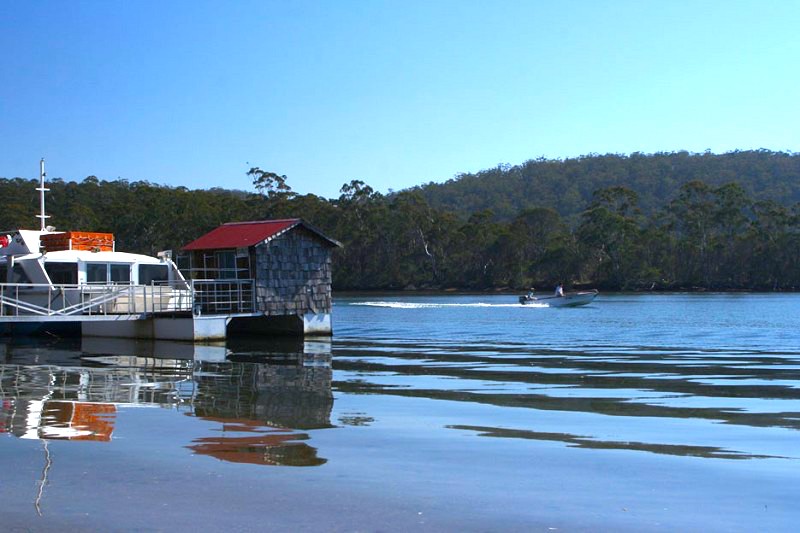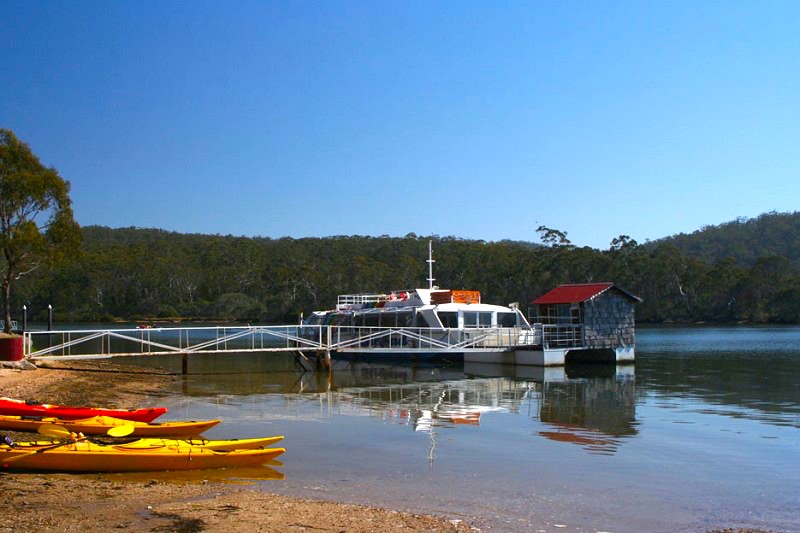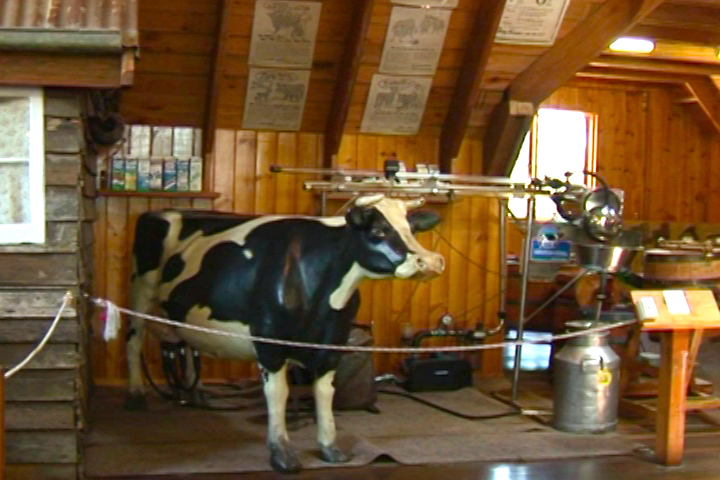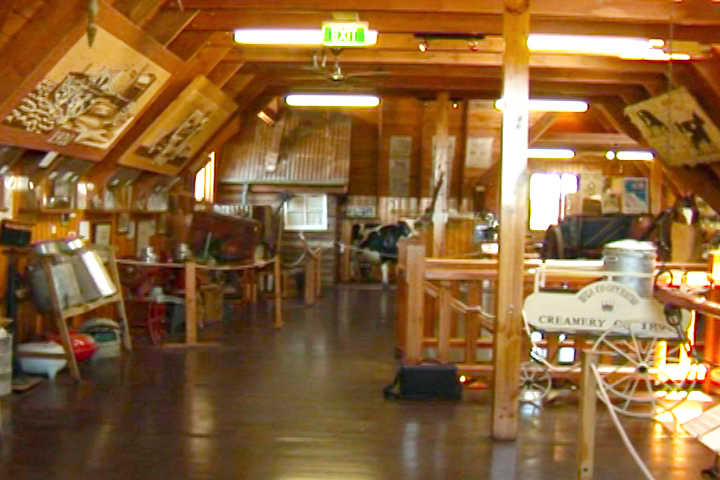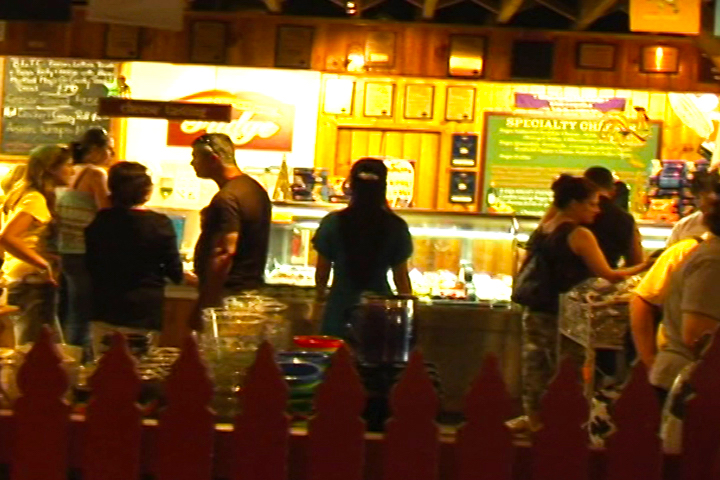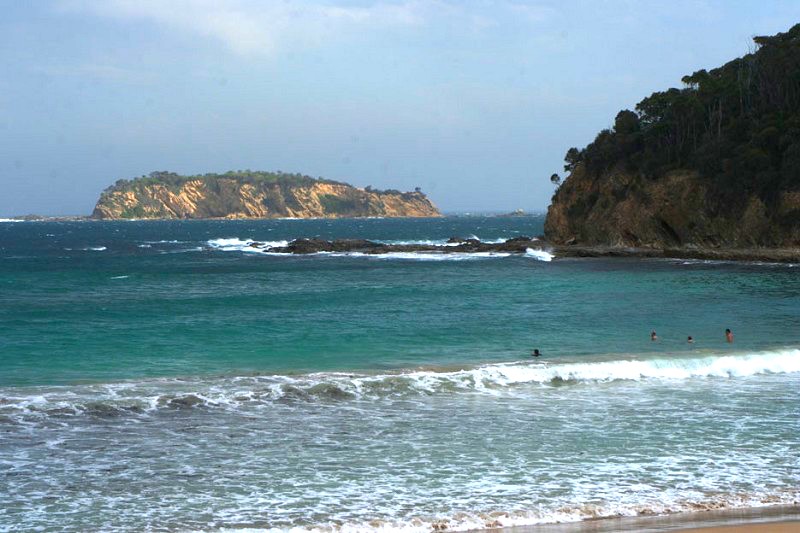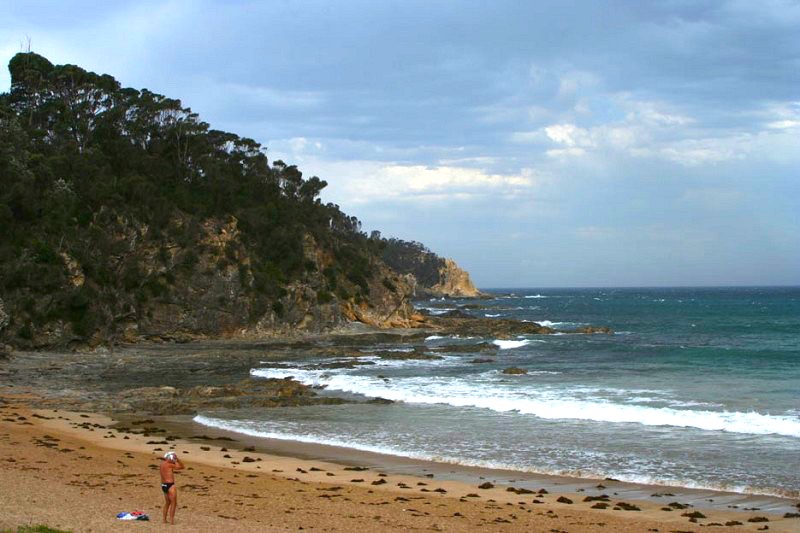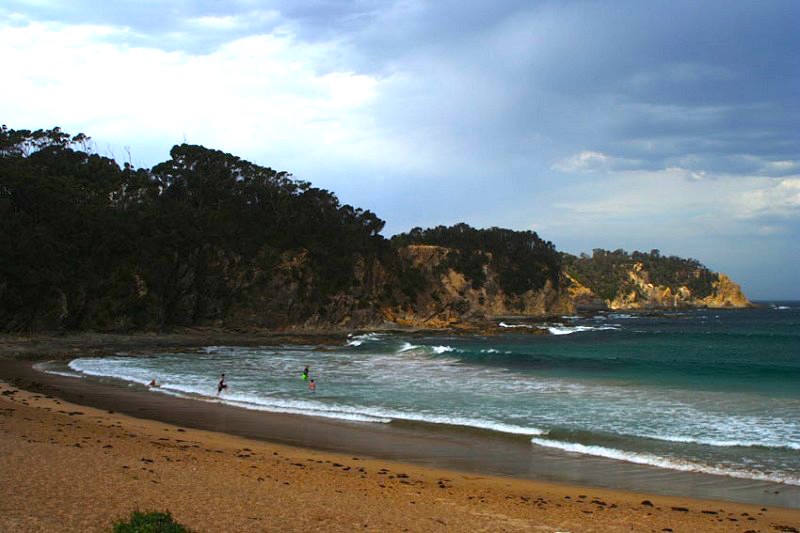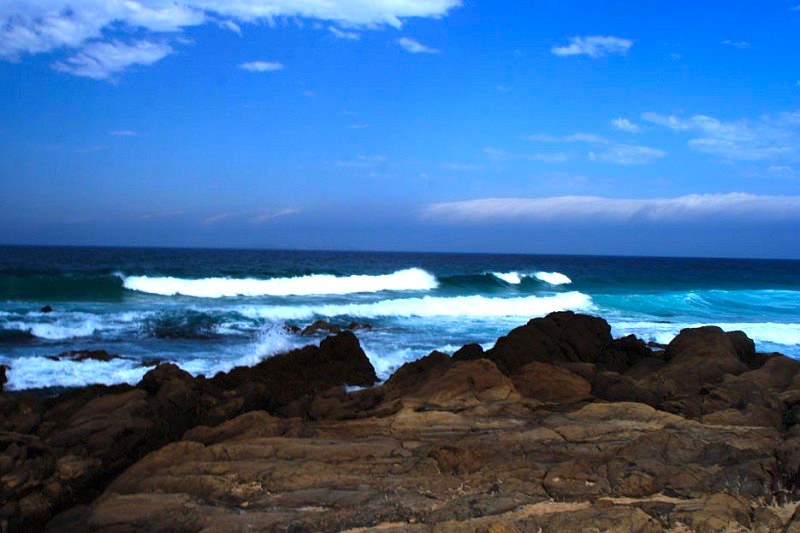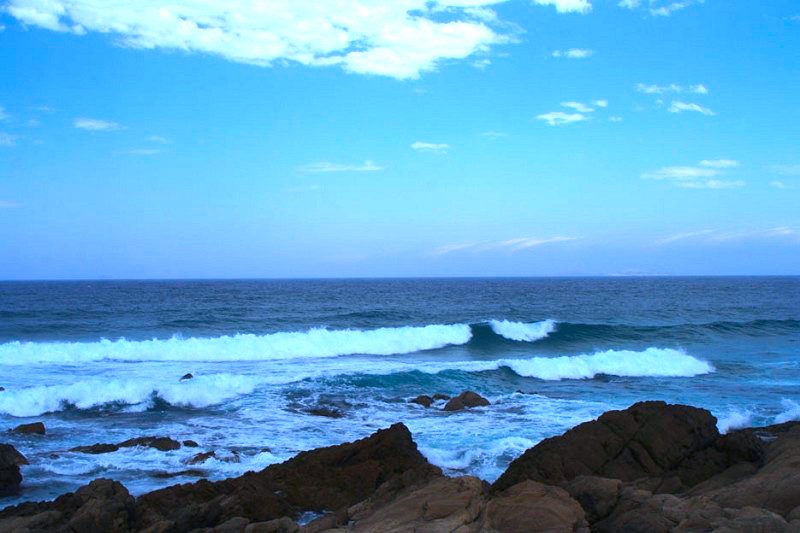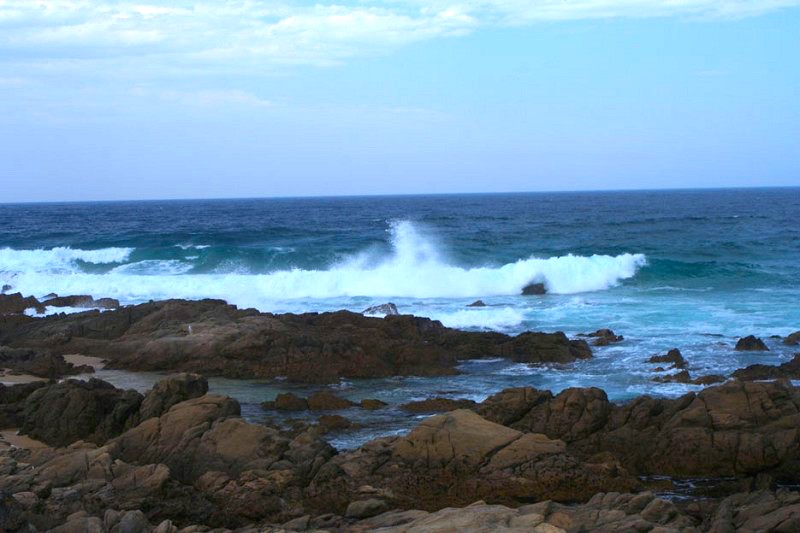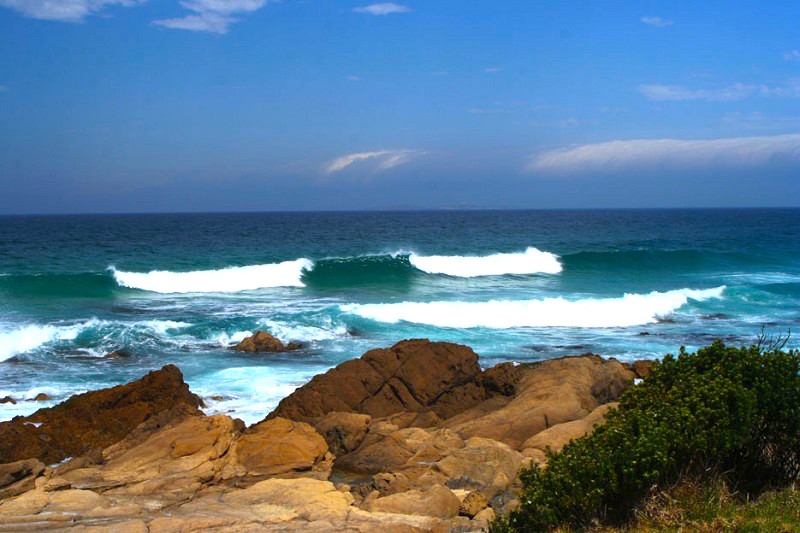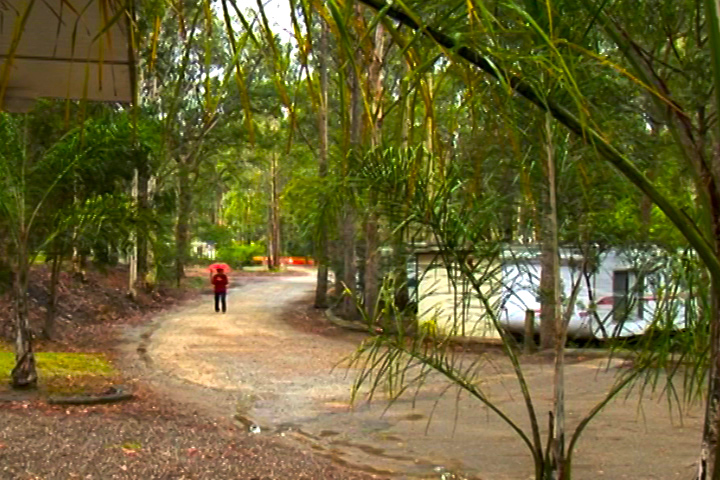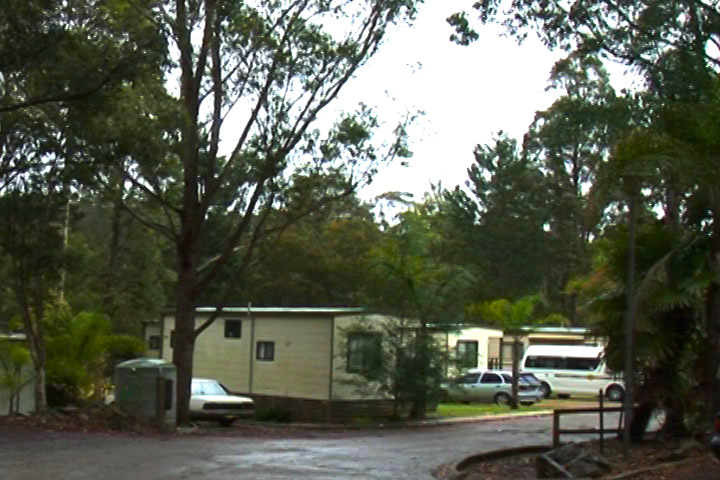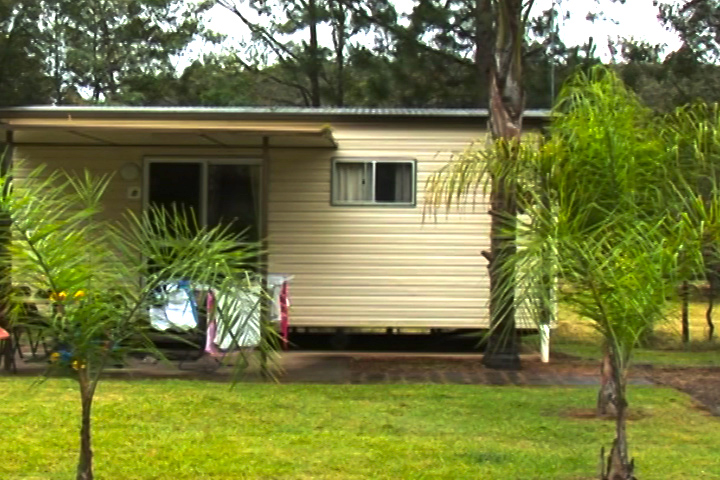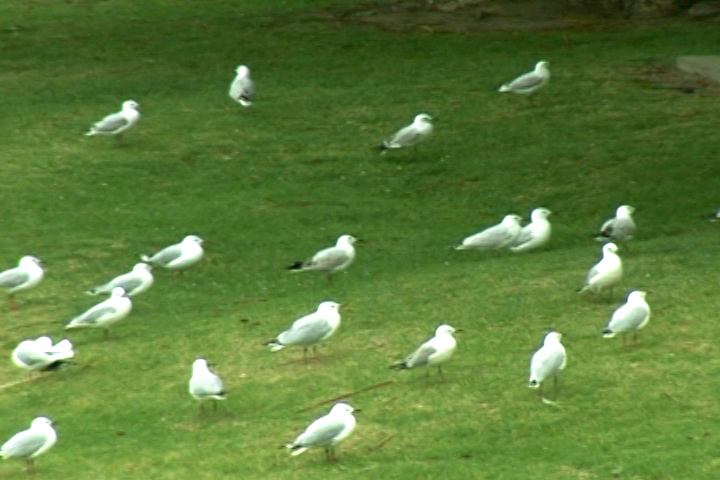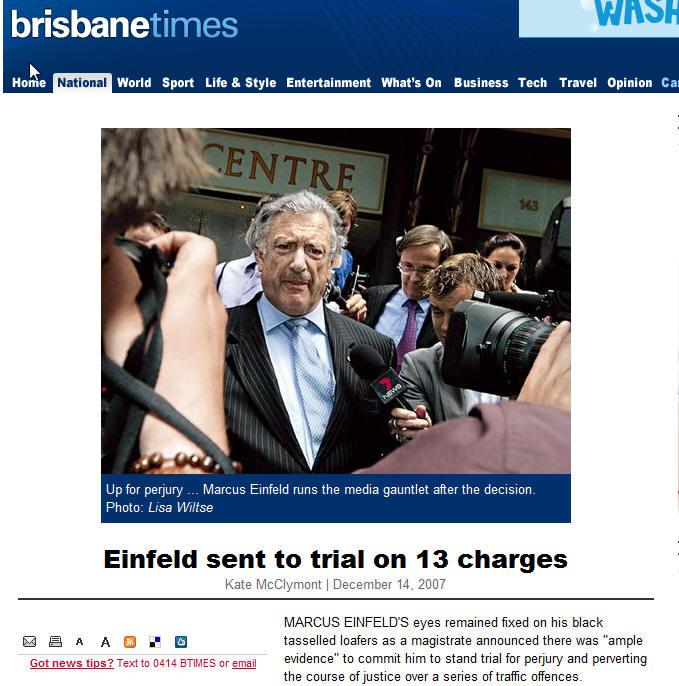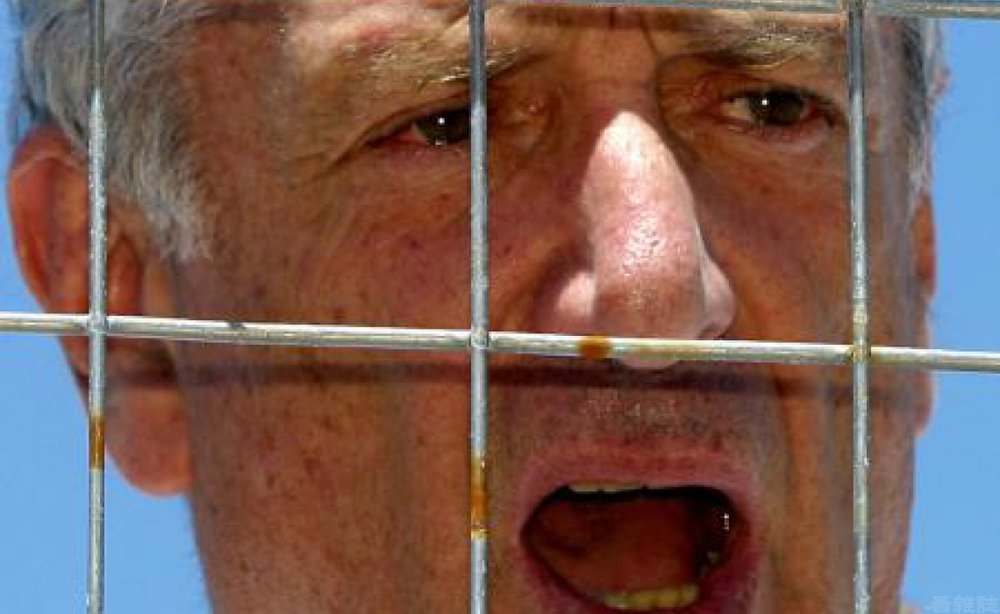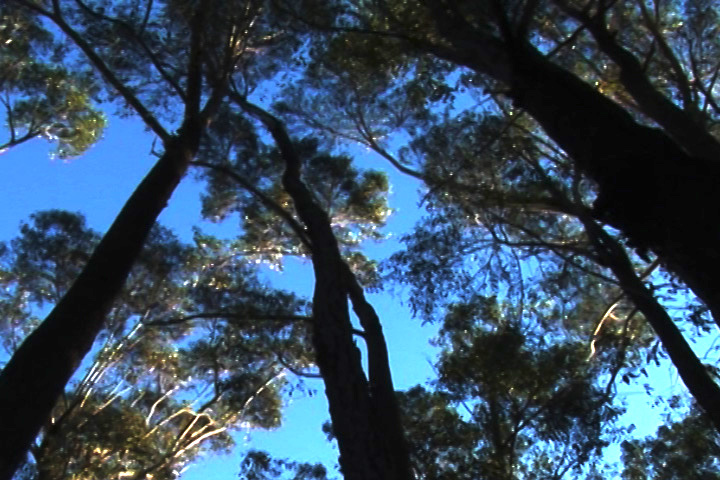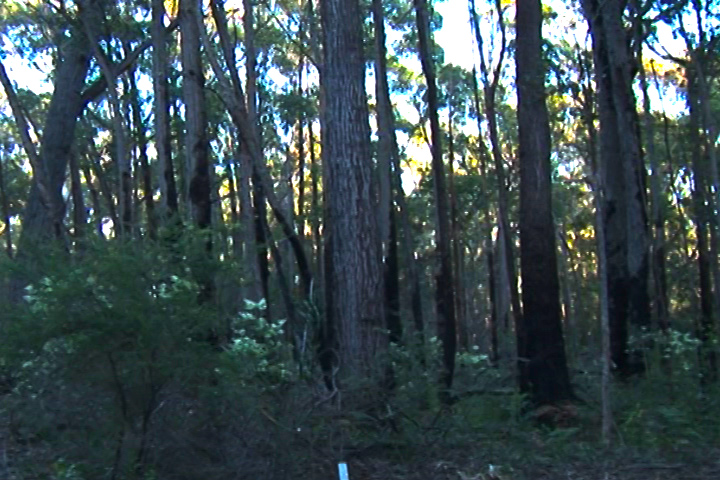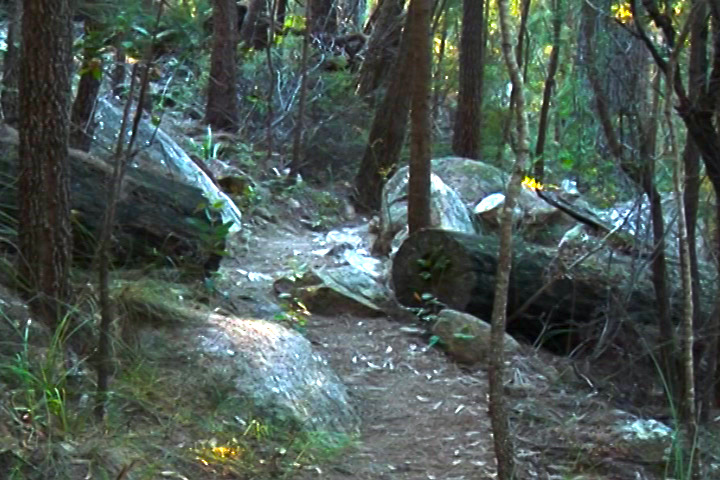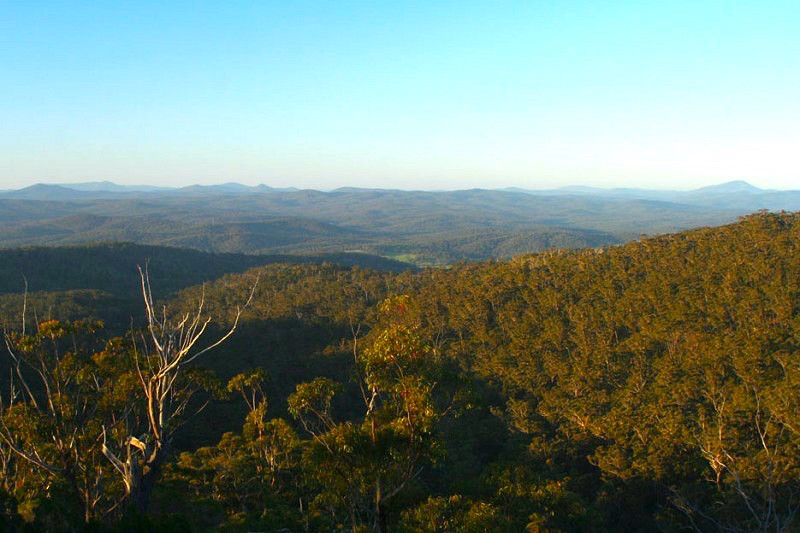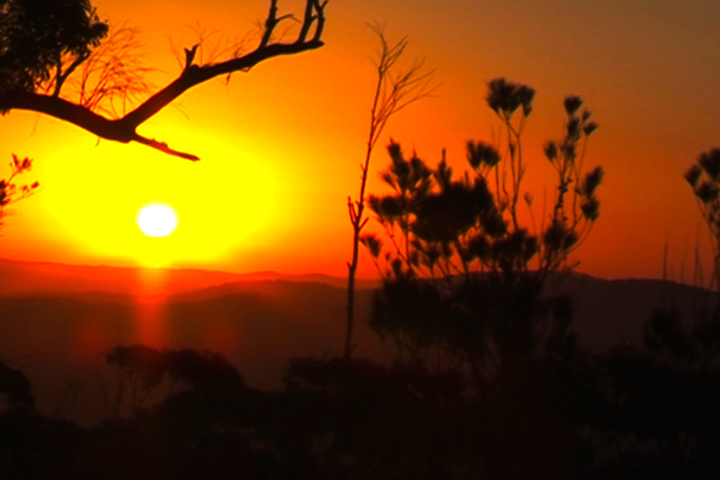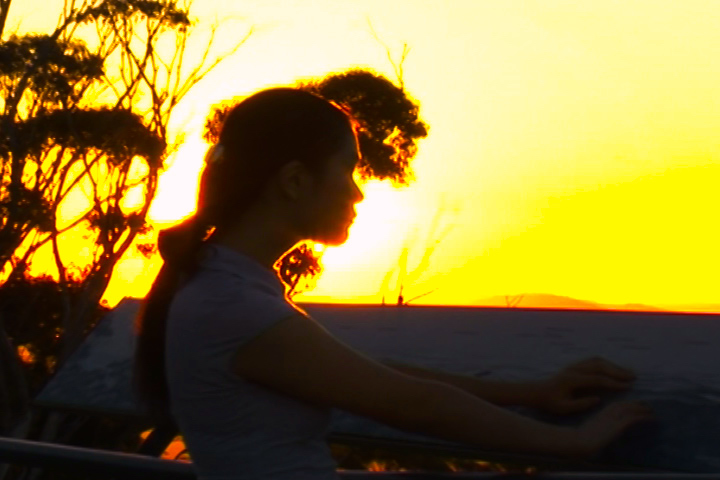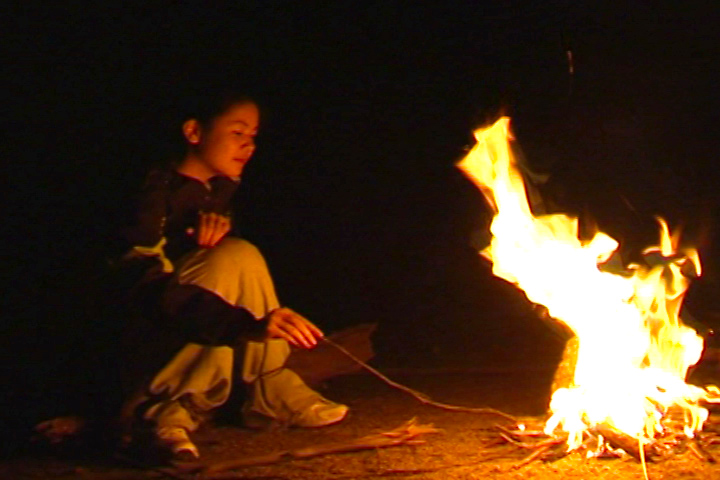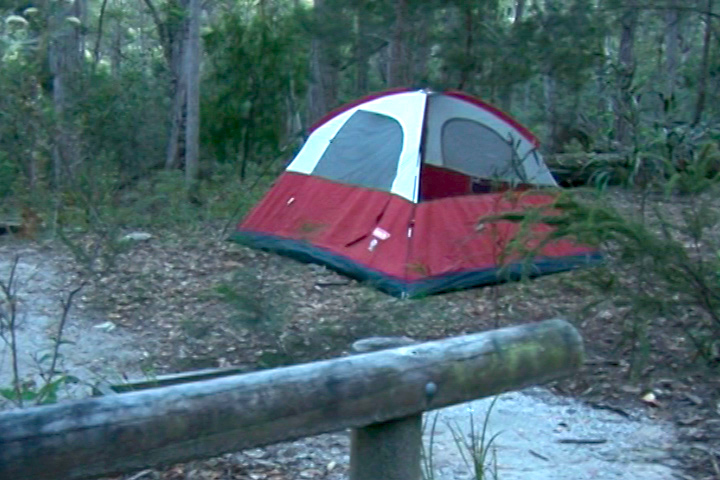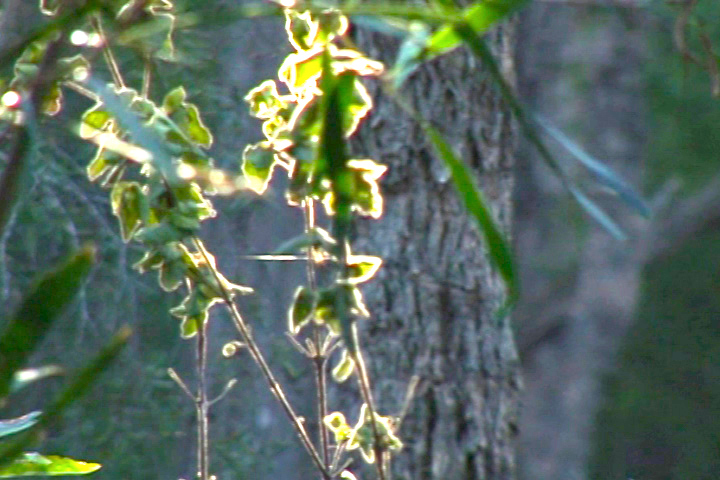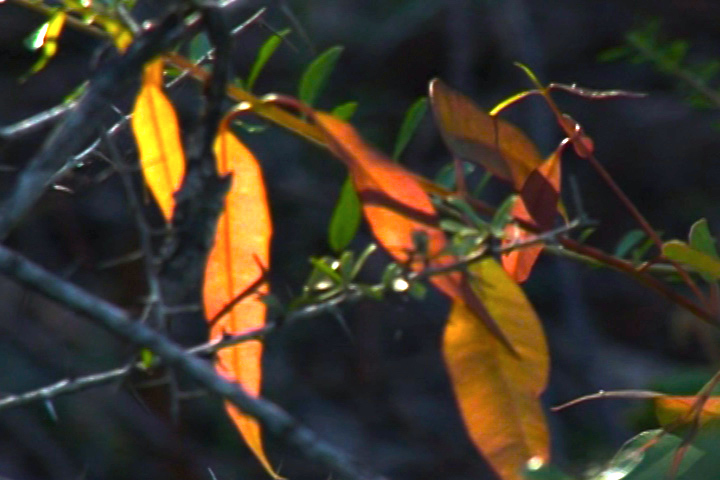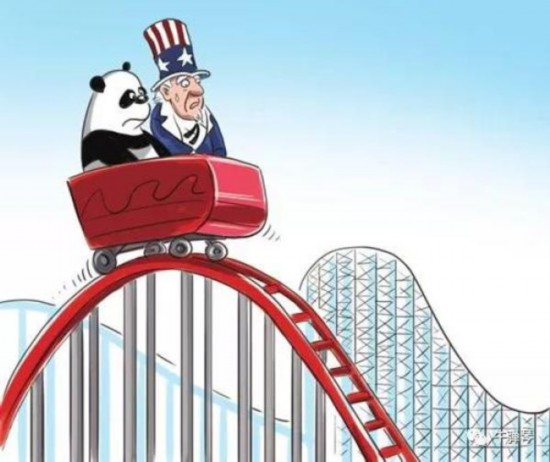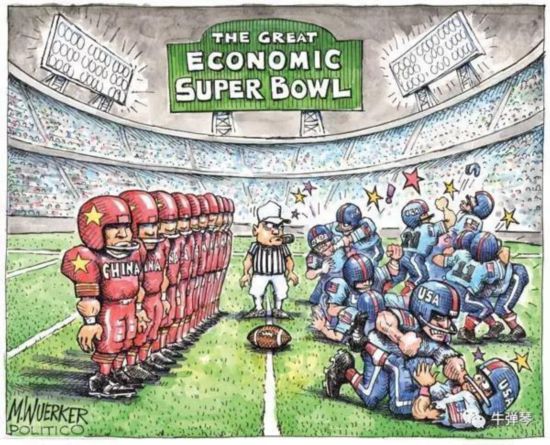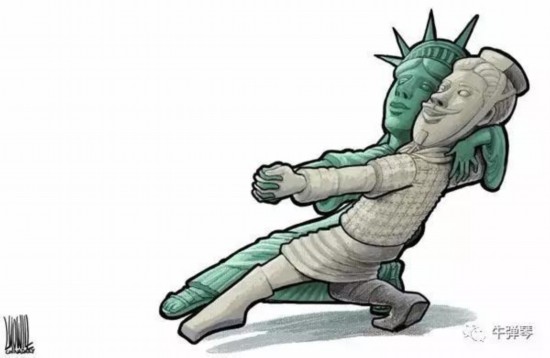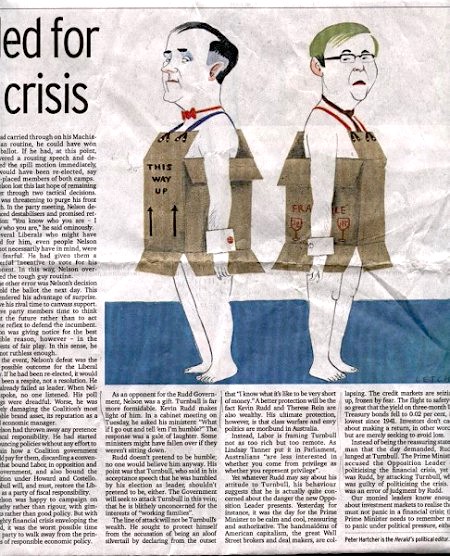BY JENNIFER ZENG
January 8, 2019 Updated: January 8, 2019
In his 2019 New Year address, China’s paramount leader Xi Jinping used one “key word” that didn’t appear in his 2018 New Year address: “challenges.”
Xi also used a famous slogan from Mao Zedong’s era, at a time when communist China, an isolated, poor, closed country, vowed to catch up with the U.K. and the United States in 15 years: “Rely on ourselves, live a plain life, and struggle hard.”
Xi also mentioned, “Taking a broad view of the whole world, we are facing a period of drastic and unprecedented changes that have not been seen in one hundred years.”
“No matter how the international situation changes, China’s confidence and determination in defending its national sovereignty and security will never change.”
For some savvy China observers and experts, what lies between the lines of Xi’s speech are his realization of how seriously bad the situation in China is now, and that “arduous struggle” lies ahead amongst unprecedented “challenges.”
Although Xi didn’t identify any specific challenges, commentators and experts around the world have helped him to name a few. And the following are some of what they listed.
Challenge 1: Mounting Pressure of the Trade War
In a very shocking internal speech on Dec. 15, Xiang Songzuo, former chief economist at the Agricultural Bank of China, former deputy director at the People’s Bank of China, and Deputy Director and Senior Fellow of the Center for International Monetary Research at China’s Renmin University, sharply criticized the loud claims made in early 2018 that “Americans are lifting rocks only to have them smash their own feet.”
Xiang asked, “Where are those people now?”
According to Xiang, the Chinese regime has made grave misjudgments about the trade war and needs to think hard about it.
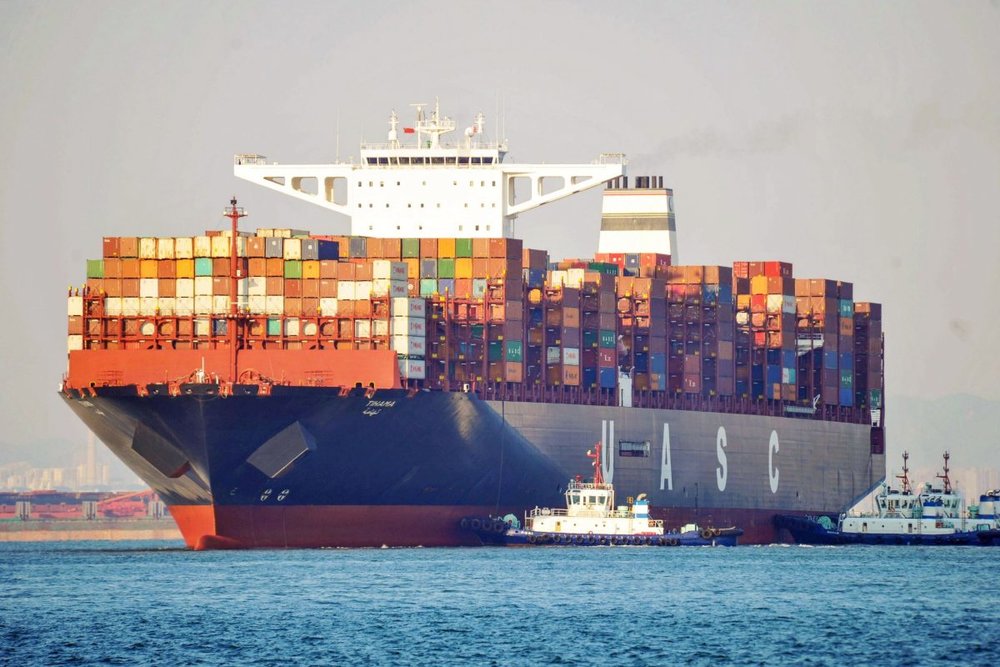
A cargo ship is seen at a port in Qingdao in eastern China’s Shandong Province on Oct. 12, 2018. China’s trade surplus with the United States ballooned to a record $34.1 billion n September despite a raft of US tariffs, official data showed on Oct. 12, adding fuel to the spiraling trade war. (STR/AFP/Getty Images)
“As a matter of fact, the trade frictions, the trade war between China and the U.S. is no longer a trade war, or an economic war, but a serious conflict between Chinese and American values,” Xiang said.
“We can be very assured that the China-U.S. relationship is now at a crossroads and is under a tremendous and historical test. So far I don’t think we’ve found a real solution.”
Xiang also said: “We used to have a phrase, ‘the strategic favorable stage for China’s economic growth.’ Do we still have a ‘strategic favorable stage’? I personally think it is fading away very quickly.”
Many economists believe that the trade war’s negative impacts upon China’s economy are yet to be seen in 2019.
Challenge 2: Economic Plunge and Poorly Performing Stock Market
In the same speech on Dec. 15, Xiang made another shocking statement that according to “an important research institute,” China’s GDP growth was not the officially claimed 6.5 percent, but was as low as 1.67 percent. Using another system of measurement, the GDP growth was negative.
Cheng Xiaonong, a doctorate who studies China’s politics and economy, wrote in a Chinese commentary piece that the “important research institute” referred to by Xiang couldn’t be any company or bank, as they wouldn’t dare to do such research or release such figures.
It should be a governmental body higher than the National Bureau ofStatistics and could probably be the Office of the Central Leading Group for Financial and Economic Affairs of the Central Committee of the Chinese Communist Party.
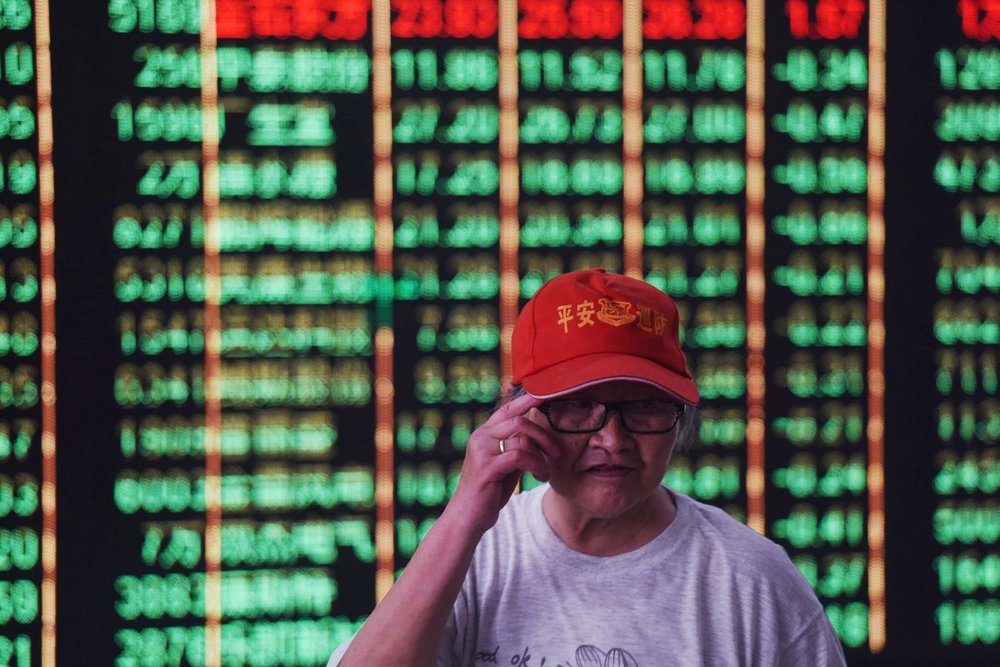
An investor stands in front of a screen displaying stock market figures at a securities company in Hangzhou in China’s Zhejiang Province on June 19, 2018. Shanghai and Hong Kong stocks plunged on June 19 on investors’ fears that the US and China could be heading for a full-blown trade war following tit-for-tat tariff threats. (-/AFP/Getty Images)
Cheng said that for any country, consumption, investment, and export are the three main engines that drive the economy.
Before 2009, export had been the major engine for Chinese economy; but this engine has since slowed down. Even without the trade war, this engine wouldn’t work well with costs rising and a large number of factories moving out of China.
After 2009, investment had been the biggest engine driving the Chinese economy, but this has come to a dead end, too, with enough newly built buildings to satisfy the market demand for the next 20 years, Cheng said.
At the same time, the actual growth rate of consumption has dropped from 24 percent in 2005 to merely 2 percent in 2018, and this trend is set to continue.
Cheng argued, with all the three engines performing poorly, the Chinese economy has no way to go except downward.
With a $2.4 trillion loss, China’s stock market earned the title of the “world’s worst” for 2018.
Tang Hao, a Chinese commentator, wrote in an article that with the real economy going down, long-term bad performance could be the new norm for the Chinese stock market in 2019.
Challenge 3 Huge Waves of Enterprise Bankruptcy and Unemployment
On July 25, both Xinhua and People’s Daily carried a story headlined “Preliminary Statistics Show that the Number of People in Our Country who Returned to Their Hometowns to Start New Businesses Has Reached 7.4 Million.”
Virtually anyone who speaks Chinese knows that this meant 7.4 million peasant workers had lost their jobs in the cities and had to return to their hometowns to try to survive.
According to a report by China Times, a mainland Chinese-language media outlet, for several months huge numbers of announcements of dissolution and liquidation can be seen on major newspapers in a variety of cities.
The report also says that a staff member of Beijing Evening News said since October, everyday, on average, there have been about 2000 companies in Beijing publishing their announcement of dissolution and liquidation, and the situations in first-tier cities such as Shanghai, Guangzhou, and Shenzhen were the same.
On Oct. 22, the Chinese news website NetEase published a report titled “In the First Half of This Year, 5.04 Million Enterprises Go Bankrupt, Over 2 Million People Lose Their Jobs.” The report was deleted shortly afterwards.
Tianjin Samsung Communication Technology chose the last day of 2018 to close down, leaving its 2000 employees to become the first batch of people to lose their jobs in 2019.
Similar layoffs have happened, noticeably, in high-end industries such as finance, real estate, IT, and high-tech, and to the “privileged” people who used to earn 1 million yuan ($145K) per year.
According to Wen Zhao, a Chinese commentator, the main reason why Xi Jinping was so eager to talk to President Trump before New Year’s Day 2019 was the tremendous pressure of unemployment.
Xi is desperate to reach some sort of agreement with the United States in January, before the Chinese New Year in February, which is traditionally a period of large waves of business closing down and increasing unemployment.
Challenge 4: The Bursting of Debt Bubbles
Many experts see astronomical debts as unexploded bombs ready to wreck the Chinese economy.
He Qian, vice director of China’s 11th National People’s Congress Financial and Economic Affairs Committee revealed that total local government debt had exceeded 40 trillion yuan ($5.8 trillion). S&P Global Ratings has estimated that China’s hidden local government debt could be $6 trillion. This means the total local government debt could exceed $11.8 trillion.
Zhu Yunlai, son of former Chinese premier Zhu Rongji, made an emotional 60-minute closed-door speech at the end of November 2018. He said that people failed to see the “asset and debt situation behind the high-speed GDP growth [of China].”
Zhu pointed out that the growth rate of assets and debts was almost twice that of the GDP, meaning that debt has been expanding at twice the speed of the GDP.
“China’s total GDP is more than 80 trillion ($11.7 trillion) in 2017, the stock of debt at the end of the year is almost 600 trillion ($87.4 trillion), compared with other countries in the world, the ratio is very high,” Zhu said.
According to a Sound of Hope report in Chinese, just as was the case in Japan, this huge debt can be deeply “buried” when the economy grows at a high speed.
However, when the economy cools down, especially with the pressure of the trade war and with a large number of private enterprises are badly affected by the regime, fatal crises could occur, causing the possible bursting of the debt bubbles.
Challenge 5: Continued Downturn of Real Estate Market
The real estate market has been one of the major industries to create GDP growth for China, but is also a major source of economic bubbles. After experiencing a dramatic price rise in the past few years, it is now seeing a receding tide.
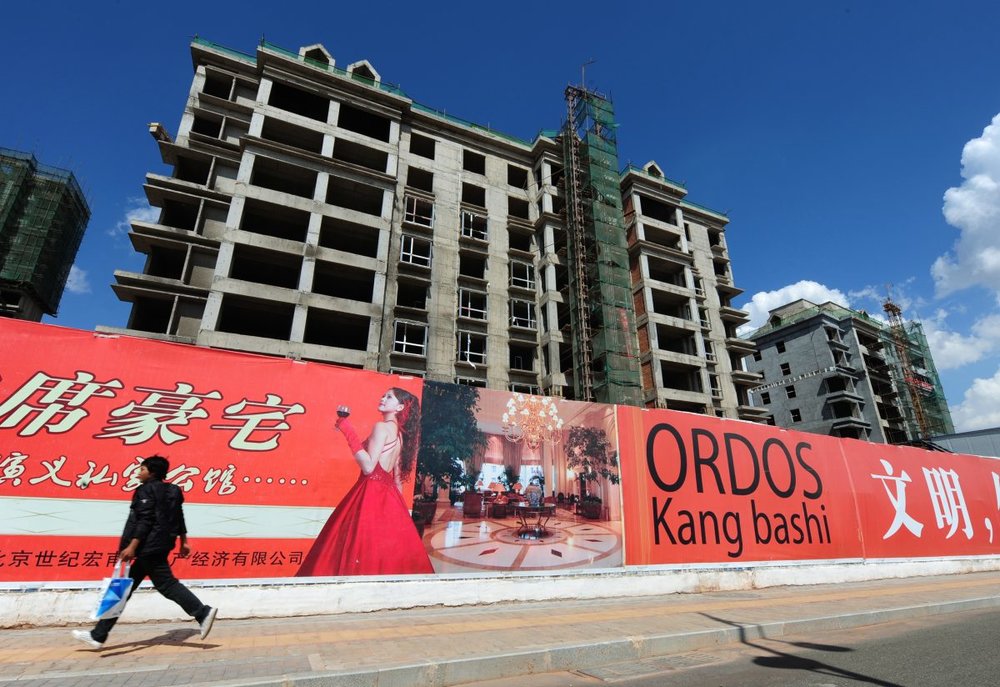
Empty apartment buildings stand in the city of Ordos, Inner Mongolia on Sept. 12, 2011. (MARK RALSTON/AFP/Getty Images)
According to the latest report by Haitong Securities, in the first 17 days of December 2018, the real estate sales growth in 41 cities has dropped to negative territory, which is -1.9 percent.
At the same time, the growth rate of land sales for the whole country in November has also dropped to negative territory.
According to professor Gan Li of Southwestern University of Finance and Economics of China, in 2017 there were around 56 million empty apartments in Chinese cities and towns, with a vacancy rate of 21.4 percent, amongst the highest in the world.
Some big names in the industry such as China Vanke, Country Garden, and Evergrande have started to put their properties on sale at deeply discounted prices; sometimes they have even promised “buy one, get one free.”
Tang Hao said in his article, if the current wave of unemployment continues, with the price of housing going down, more and more people would have problems paying their mortgage, or become eager to sell their properties.
As a result, the real estate bubble could start to burst, which could in turn cause a crisis for the entire financial system.
Challenge 6: Accelerating Internal Struggles within the Party
According to Tang Hao, the high-level internal struggles within the Communist Party will not end in 2019, but will only become fiercer.
In his speech on the 40th Anniversary of China’s Reform and Opening Up, Xi Jinping emphasized “upholding the centralized, unified leadership of the Party.” Tang said that whenever something is emphasized in Communist China, it means that this thing is lacking.
The Chinese-language news website Duowei News published an article in December 2018 headlined, “Preventing Extreme Leftists from Tearing Apart China, Xi Jinping Should Be Held Responsible.”
However, after only one day, this article was changed to “Preventing Extreme Leftists from Tearing Apart China, Xi Jinping Powerfully Sets Things Right.”
Tang Hao said, unless Duowei had been hacked, or the editors were mentally ill, such a complete “U-turn” suggests how intense the internal struggles within the party are.
Furthermore, with the ongoing trade war, many state-owned and private businesses have been gravely affected. As a result, the vested interests of the powerful, privileged moguls have also been affected. And this would also cause more fierce power struggles within the party.
Challenge 7: Increasing Anger of the ‘Ordinaries,’ Accelerating Conflicts Between the Party and the People
Beijing has long stopped publishing figures of “mass incidents” (public protests/appeals/gatherings) in China. According to an article in The Economist, many analysts estimated that there were as many as 180,000 incidents in 2010, which was 493 per day.
Tang Hao said, at the moment, with commodity prices and the costs of health and senior care rising, ordinary Chinese people are having a hard time making ends meet.
If the employment situation becomes worse, more enterprises will close down, more financial bubbles will burst, and a large number of ordinary citizens will lose their incomes and/or assets.
More activities defending people’s rights could appear throughout China, and the regime would surely use more violence to crackdown on these, which means more frequent and violent clashes between the regime and the people.
Challenge 8: Human Rights Crises in an Orwellian Society
With one to two million Uyghurs and other Muslims detained in prisons and re-education camps in the Xinjiang Uyghur Autonomous Region, the world has started to see to what extent communist China has become an Orwellian society.
Its “Skynet” system, “Project Dazzling Snow”(or “Sharp Eyes Project,” “xueliang” literally translates “bright as snow”), “social credit” system, “intelligent uniforms” for students, and so on, aim to have “full geographic coverage, full network sharing, full-time coverage, and full operational control” of the entire nation.
This means that the surveillance systems will be nationwide, capturing every nook and cranny with the exception perhaps of private homes, and will be readily accessible to law enforcement 24/7 data—at the push of a button.
According to research by IHS Markit, China had 176 million surveillance cameras in operation in 2016, and the speed of growth is expected to see that figure more than triple to reach 626 million by 2020.
While the communist regime is pushing forward its full-scale surveillance and control, and is using more ruthless means to persecute people, the world is also watching and pushing back.
In 2018, a number of hearings about the deteriorating human rights situation in China were held in the U.S. Congress; more and more lawmakers, human rights groups, and scholars are calling for sanctions for the regime and the party officials who are responsible for the persecution.
There have also been calls to relink human rights with trade talks with China.
All these pressures will continue to be felt by the Communist regime in 2019.
Challenge 9: Increasing Tensions With Taiwan
On Jan. 2, Xi Jinping made a firmly worded speech marking the 40th anniversary of the “Message of Compatriots in Taiwan” when, on Jan. 1, 1979, China offered to open up communications and stop military action against the island.
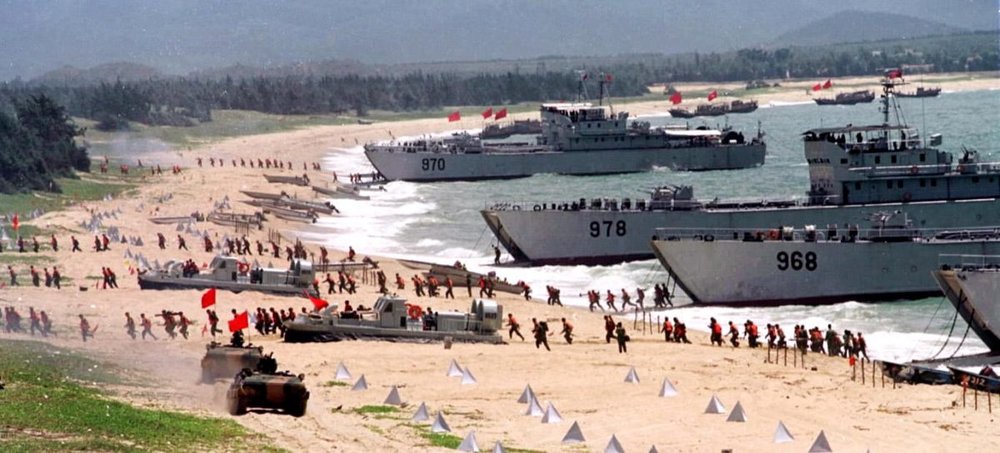
The People’s Liberation Army storms ashore from landing crafts in an exercise on the mainland coast close to Taiwan, on Sept. 10, 1999. (STR/AFP/Getty Images)
Xi said that Taiwan’s unification with mainland China is “inevitable,” issuing a stern warning against any “separatists” or independence attempts.
“China must and will be united,” said Xi. “We make no promise to give up the use of force and reserve the option of all necessary means,” Xi added, not ruling out the use of military action against Taiwan.
Taiwan’s President Tsai Ing-wen immediately responded, on the same day, showing an even tougher stance by not only calling upon China “to bravely move towards democracy,” but also openly denouncing the “1992 Consensus.”
Tsai was referring to a 1992 understanding, although whether any agreement was reached is disputed, according to which China and Taiwan agreed to the principle of “one China” including both the mainland and Taiwan, with the provision that China and Taiwan would interpret that principle differently.
In 2018, news about the People’s Liberation Army (PLA)’s air force and ships circling Taiwan, sometimes with bombers and fighters, was often reported.
Wen Zhao said this means from a military point of view, the PLA was preparing for possible attacks on Taiwan. So they had to become familiar with the future battleground first.
To “liberate” or “unify” Taiwan has been part of the “dreams” for several generations of Chinese Communist Party (CCP) leaders. How far will the Chinese regime go after the latest round of exchanging sharp words? One has to wait and see.
But according to Tang Hao, one thing is certain. With the 2020 Taiwan presidential election very close, the CCP will certainly try to interfere with it in a comprehensive and intensive manner.
How will this affect the relationship between the CCP and Taiwan? Will the conflicts be “upgraded” to another level?
Another factor is, since president Trump took office, several laws related to Taiwan have been passed, including the National Defense Authorization Act for Fiscal Year 2019, Taiwan Travel Act, and Asia Reassurance Initiative Act of 2018.
These laws sent the CCP a very clear message that the United States wouldn’t give up its responsibilities towards Taiwan, or tolerate the CCP’s provocative activities.
And this gives another dimension to the Taiwan challenge the CCP will be facing in 2019.
Challenge 10: Increasing Possibilities of Geopolitical Clashes with the US
President Trump tweeted on Dec. 28 that he “just had a long and very good call with President Xi of China. Deal is moving along very well.” This statement doesn’t change the fact that the values of the United States and the CCP are fundamentally different.
On Dec. 18 Xi claimed, “We will reform when we can, and won’t change anything that cannot be changed whatsoever.”
Can the clashes over basic, core values stop existing in the near future?
At the same time, Tang Hao wrote, tensions in the South China Sea, and the uncertainty over the denuclearization of North Korea, could all add tensions to the ongoing trade war.
Would all these factors, plus possible military frictions with Taiwan form a “perfect storm” for the CCP in 2019, and result in unexpected military frictions with the United States?
At this point, Tang came to the same conclusion as Xi Jinping: 2019 will be a year full of risks for China and could also be a year when drastic changes happen.
Source: https://www.theepochtimes.com/top-10-challenges-communist-china-will-face-in-2019_2760612.html
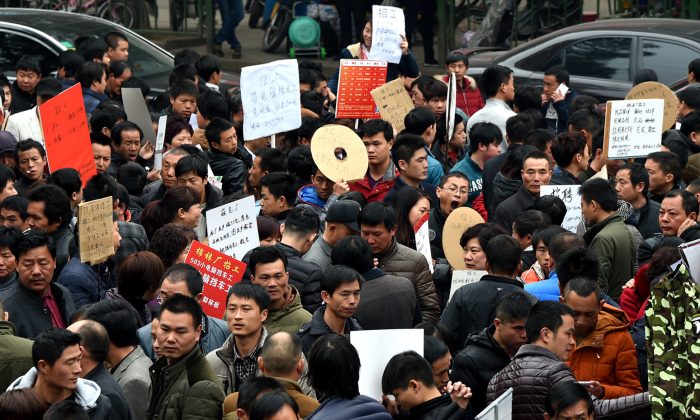
Applicants look at recruitment information displayed at a labor market in Yiwu, China on Feb. 19, 2016. (VCG/VCG via Getty Images)

